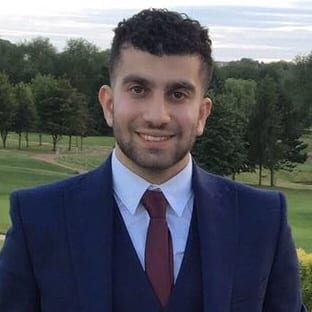This week is the eighth anniversary of the conflict in Syria. The death toll is well over half a million and over half the population has been internally or externally displaced as of last year. The conflict has transformed countless lives forever, and in a world where it is almost impossible to be surprised at anything, it still has that awful capacity to shock us.
It is unfortunate that the roots of the uprising are no longer talked about; for a long time, now, the focus of the official narrative has shifted towards counterterrorism due to the rise of Daesh. Compare, for example, the public support for revoking Shamima Begum’s British citizenship for travelling to Daesh-held territory and marrying a terrorist, with the almost deafening silence on the question of Asma Assad’s British citizenship. This is despite the fact that losing citizenship leaves Begum stateless — something denied by the Home Office, but a legal critique of the controversial decision is beyond the scope of this article — while Assad is married to a mass murderer.
The Syrian uprising started as an extension of the 2011 Arab Spring. As dictators fell in Tunisia and Egypt and people rose up against the regimes in Libya, Bahrain and Yemen, the Syrian people were inspired. Some boys who scribbled graffiti on the walls of Dar’aa — “Your turn next, doctor [Bashar Al-Assad]” — were punished severely. Instead of reforming from within, and understanding the predicament that he was in, President Assad responded in a way in which the leader of any police state would and cracked down on protesters in the city who protested against the detention and torture of the children.
READ: Over 300 chemical attacks by Assad forces, says report
What followed in the weeks, months and years after that was terrifying and has stained the conscience of humanity. Decades after the Holocaust and the Rwandan and Srebrenica genocides — with the mantra of “Never again” still ringing in our ears — we have witnessed yet more callous disregard for human lives. With Syria disappearing slowly from the mainstream media, and conflict fatigue creeping in, the atrocities committed by the Assad regime are in danger of being forgotten or, even worse, legitimised.
In that context, it is disconcerting that some states have recently re-opened their embassies and re-established diplomatic relations with the regime. Whilst it was good to hear the British government deny that it was looking to make the same move, it is worrying that the Foreign Secretary admits that, unfortunately, Assad looks set to remain in power. Realities in terms of power politics are one thing, and Assad has an extremely powerful ally and sponsor in Russia (a permanent member of the UN Security Council), but he cannot be spun into a Hirohito-like figure. This is beyond the realms of reason, rewards his callousness and ultimately breeds resentment which, in turn, is likely to contribute towards future extremism.
The chemical weapons attacks that Assad perpetrated against his own people are unconscionable but, again, are shifting away from the public discourse. The Ghouta incident in August 2013, when the regime gassed its own citizens, was arguably also when the tide of the conflict really shifted and Assad understood that he could carry out such attacks with impunity. The fact that the US Holocaust Memorial Museum has been educating its visitors about the atrocities of the Assad regime speaks volumes about how dire the circumstances are. In years to come, we will be asked why we stood by and let this happen; where was the international community?
![An affected child and a man receive a medical treatment after Assad regime forces conduct allegedly poisonous gas attack on Sakba and Hammuriye districts of Eastern Ghouta, in Damascus, Syria on 7 March, 2018 [Dia Al Din Samout/Anadolu Agency]](https://i0.wp.com/www.middleeastmonitor.com/wp-content/uploads/2018/03/2018_03_07-Victims-of-allegedly-gas-attack-receive-treatment-in-Eastern-Ghouta20180308_2_29110087_31436935-.jpg?resize=1200%2C800&ssl=1)
A child receives medical treatment after Assad carried out a poisonous gas attack in Eastern Ghouta, Syria on 7 March, 2018 [Dia Al Din Samout/Anadolu Agency]
As such, any attempt to allow Assad to run as a candidate in a future presidential election in Syria or to be part of political reconciliation efforts is doomed to fail. It is morally reprehensible to allow a man who is considered a war criminal by his people to remain in office.
History will judge harshly those who sat back and watched as the Syrian conflict unfolded. We can only hope that, eight years on, “Never again” really does mean “Never again”.
READ: New Assad statue triggers protest in cradle of Syrian revolt
The views expressed in this article belong to the author and do not necessarily reflect the editorial policy of Middle East Monitor.


![Wounded children are taken to hospital after the Assad Regime attacked Idlib, Syria on 16 February 2019 [Enes Diyab/Anadolu Agency]](https://i0.wp.com/www.middleeastmonitor.com/wp-content/uploads/2019/02/20190216_2_34977630_41739189.jpg?fit=1200%2C800&ssl=1)









